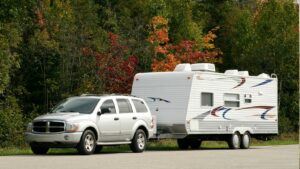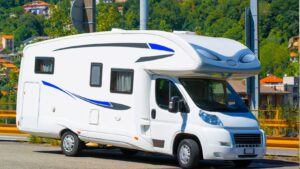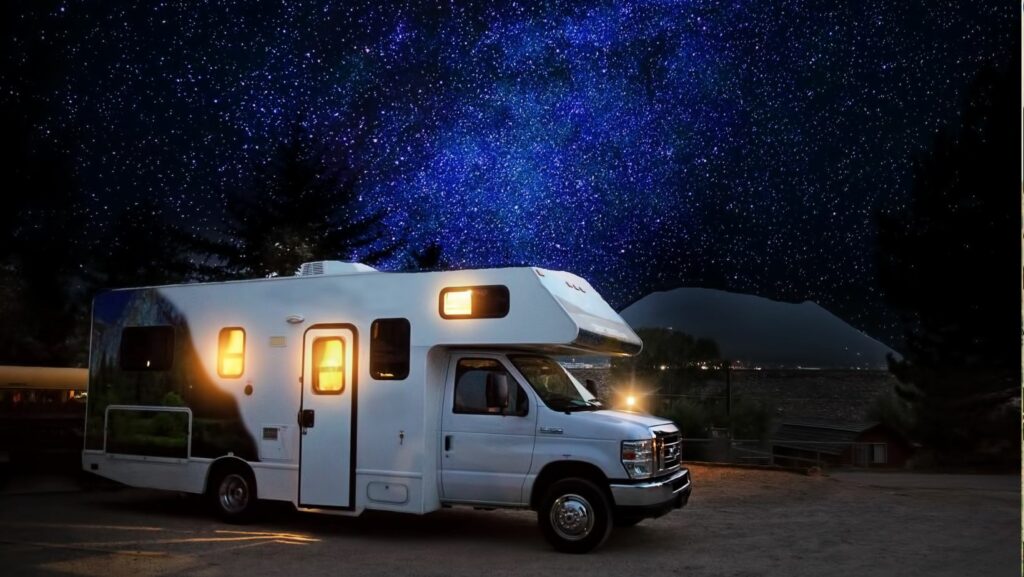Travel Trailer Tips
When choosing a travel trailer, it’s essential to consider its size and layout. Ensuring the trailer matches your needs and preferences is crucial for a comfortable travel experience. Evaluate the compatibility of the travel trailer with your tow vehicle to guarantee safe and efficient towing.

When considering the size and layout of a travel trailer, think about how many people will be traveling in it and what amenities are essential for your trip. A larger trailer provides more living space but may require a more powerful tow vehicle. Consider the layout in terms of sleeping arrangements, kitchen facilities, and storage options to ensure they meet your requirements.
It’s vital to evaluate the compatibility of the travel trailer with your tow vehicle. Check the towing capacity of your vehicle to verify that it can safely tow the loaded trailer. Consider factors such as weight distribution, hitch type, and braking systems to ensure a secure towing experience. Always follow the manufacturer’s guidelines for both the trailer and tow vehicle to avoid any complications on the road.
Essential Travel Trailer Tips for Beginners
When embarking on a journey with a travel trailer, it’s crucial to understand basic maintenance tasks. Regular maintenance ensures the trailer’s optimal performance and longevity. Tasks such as checking tire pressure, inspecting brakes, and servicing the electrical system are essential for a safe and worry-free travel experience.

To maintain the travel trailer’s functionality, owners should regularly inspect and lubricate moving parts, such as hitch components and stabilizing jacks. Keeping the trailer clean, inside and out, prevents corrosion and extends its lifespan. Understanding how to winterize the trailer properly is also vital to protect it during colder months.
Efficient packing is key to maximizing space and ensuring a smooth journey. Beginners should pack essential items first, such as bedding, kitchen supplies, and clothing, to prioritize comfort and convenience. Utilizing storage solutions like bins, organizers, and collapsible items can help optimize space inside the trailer. Moreover, distributing weight evenly and securing items while traveling prevents shifting and potential damage.
Maximizing Comfort in Your Travel Trailer
Optimize the existing content under the following subheadings for enhancing the quality and relevance.
Enhancements for Living Space
- Consider multifunctional furniture: Opt for items like sofa beds or tables with storage to maximize space utilization within the travel trailer.
- Use collapsible items: Opt for collapsible kitchenware, chairs, and tables to save space when not in use.
- Utilize vertical space: Install shelves or organizers on walls to store items efficiently and keep the living area clutter-free.
- Personalize decor with removable items: Add comfort and style to the interior by using removable cushions, curtains, or rugs that reflect your taste without taking up permanent space.

- Insulate windows and doors: Use weather stripping and curtains to prevent heat loss in cold weather and maintain cool temperatures in hot climates.
- Invest in portable fans or heaters: Depending on the season, portable fans can help with air circulation, while heaters can keep the trailer warm during chilly nights.
- Use dehumidifiers: Control humidity levels inside the trailer to prevent mold and musty odors, especially in humid environments.
- Consider portable air conditioning units: Simplify temperature control by using portable AC units for added comfort during hot weather.
When it comes to traveling with a travel trailer, ensuring safety on the road is paramount. Here are some key safety measures to consider:
Maintaining a safe travel trailer begins with regular inspections. Checking the tire pressure, brakes, lights, and wheel bearings before each trip is crucial. It’s also essential to inspect the hitch and coupler for any signs of wear and tear. Regularly inspecting the propane system and electrical connections ensures they are functioning correctly, reducing the risk of accidents on the road.
Being prepared for emergencies is vital. Ensure the travel trailer is equipped with a well-stocked first aid kit, fire extinguisher, and emergency tools. Familiarize yourself with basic troubleshooting techniques for common issues like flat tires or battery problems. Additionally, having a roadside assistance plan in place provides peace of mind in case of unforeseen breakdowns or accidents.



